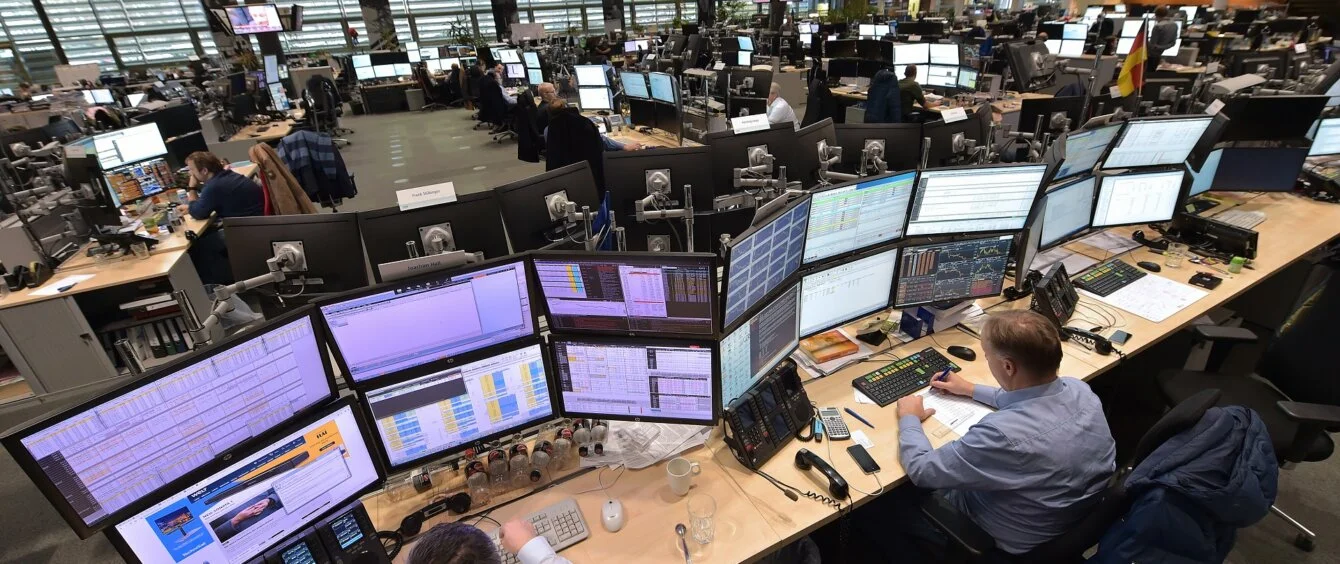Computer scientists have long explored an area which has come to draw widespread attention. Artificial intelligence (AI) ushered in a new digitisation phase in 2022, thanks to chat bots the likes of ChatGPT. Ever since, software capable of making its own decisions while evolving autonomously has reached the limelight in an increasing number of sectors. These types of programs also have potential in the energy business.
Computer programs have been making decisions for almost ten years at RWE Supply & Trading. The subsidiary of energy company RWE specialises in energy trading, for which it has been using algorithms to support its operations in certain areas since 2014. These algorithms can evaluate huge amounts of data in real time and make automatic trades on energy markets – faster and more reliably than any human being.
Electricity trading breaks down into several market segments. In forward trading, electricity is traded months or years ahead. In day-ahead trading, it is traded for the next day. In intraday trading, transactions can be concluded for the same day. As the energy transition progresses, the intraday market is becoming more important because power production from renewables cannot be planned perfectly and thus at times requires adjustments to be made at short notice. This can cause the situation on the intraday trading market to change within seconds. It is virtually impossible for a human to maintain an accurate overview. This is why businesses are increasingly using algorithms that evaluate the glut of data and react on the market accordingly.
Algorithms are not the same as AI
However, algorithmic power trader Hendrik Vollrath claims that such systems are not actually artificial intelligence. He was involved in the development of the very first trading algorithms at RWE Supply & Trading and says, “Our algorithms are first and foremost classical automation software – not learning AI systems. Our algorithms are programmed to follow a decision-making logic based on predetermined strategy parameters. By contrast, AI learns its own, optimal decision-making logic through suitable training, with the details of such logic largely remaining a black box for the human user.” Following the decision-making process of such systems from the outside is thus virtually impossible.
However, this is precisely what is paramount to traders at RWE Supply & Trading: “As market participants, we undertake to guarantee that our algorithms display trading behaviour that is always in line with the market,” emphasises Christoph Kath, another algorithmic power trader at RWE Supply & Trading. “This is why our algorithms are designed so that we can trace every step. If machine learning – the key technology for AI – is used, this can only be done to a limited extent.” This is because the system generates its own knowledge by identifying patterns and regularities in datasets.
AI already successful in test trading
A recent study by the Fraunhofer Institute for Energy Economics and Energy System Technology (Link in German) suggests that these types of application can absolutely make successful trades. In trials, assisted trading agents have already achieved promising results through deep learning – a domain of machine learning. However, the scientists caution that further experiments are necessary before deploying such AI software in live trading, emphasising that one issue needing clarification is the degree to which they work reliably in real life settings.
Nevertheless, RWE Supply & Trading’s algo traders believe artificial intelligence harbours substantial potential for their daily work. “Energy markets are extremely dynamic, and we must constantly adapt our algorithms to changed circumstances. Given this agile way of working, AI could make a valuable contribution,” says Hendrik Vollrath. He states that it would be conceivable for AI to monitor the algorithms’ development, thereby providing detailed insight into the impact of changes on trading results.
Advantages for digitised companies
RWE Supply & Trading’s experts have absolutely no doubt that AI will play a role in energy trading. “Those who succeed in integrating the new technology in existing processes well will become more agile and productive – a competitive edge that should not be underestimated in our dynamic market environment,” says Hendrik Vollrath.
And he underscores that algo trading has the best prerequisites for this purpose: “Algo trading can definitely be a shining example of digitisation in the working world. Be it our trades, our internal processes or the history of our software development, we have huge amounts of data in each of these areas. We believe this is an outstanding springboard to the future deployment of AI.”
Photo credit: © RWE AG
